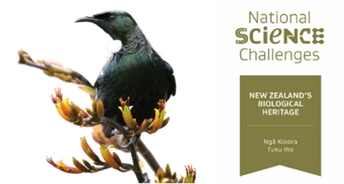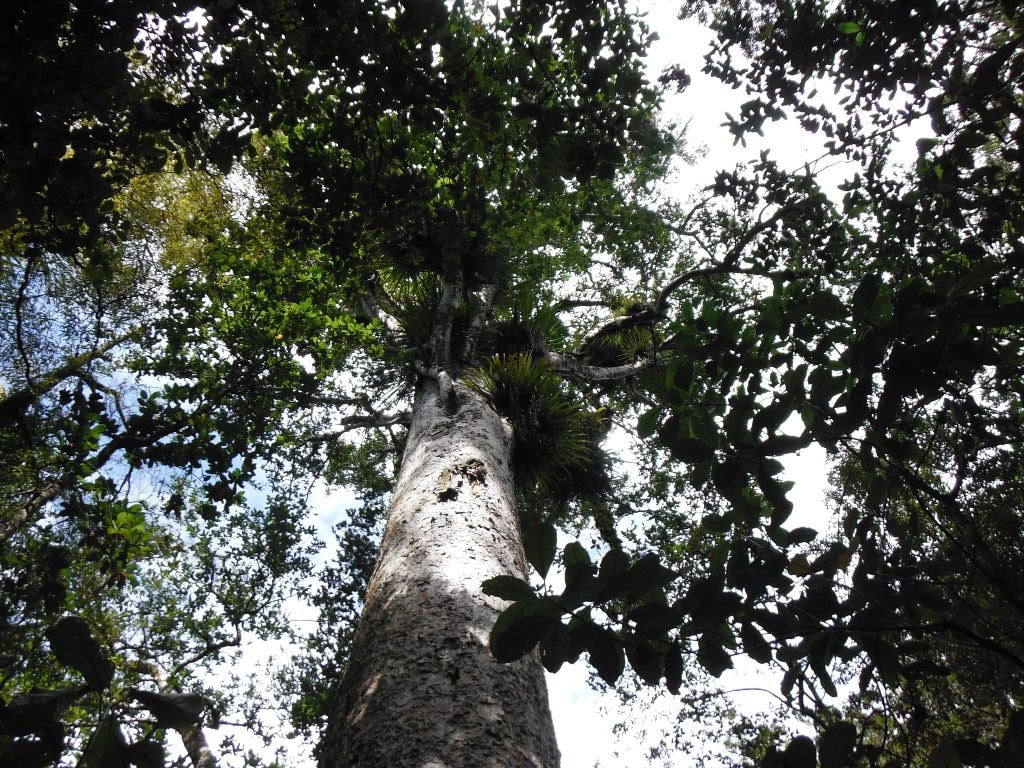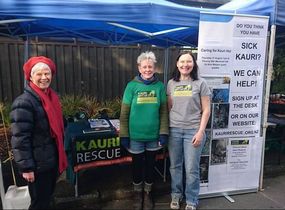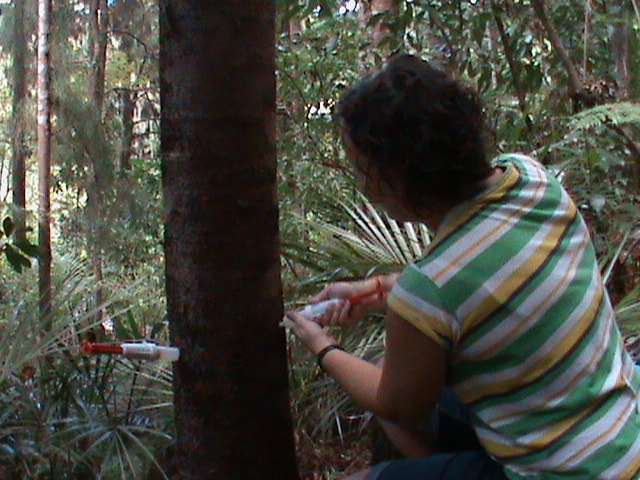Kauri Rescue: Community Control of Kauri Dieback: Tiaki Kauri

Kauri Rescue or Community Control of Kauri Dieback: Tiaki Kauri is a two year project funded by the National Science Biological Heritage Challenge, which engages the public in refining a new citizen science tool for the treatment of Kauri Dieback disease that is decimating kauri forests in northern New Zealand. Kauri is an iconic species endemic to New Zealand and are regarded as taonga by Māori.
This exciting citizen science project recruits private landowners to work alongside scientists to treat their own trees that are affected by Kauri Dieback Disease, using a chemical called Phosphite. This chemical has to date shown great promise in Kauri Dieback Programme funded scientific trials, by enabling kauri to fight back against the Phytophthora agathidicida pathogen that causes the disease. Landowners are also able to test other treatments, encouraging both western science and mātauranga Māori methods. The project team monitor results and collect data on all treatments so that their efficacy can be determined.
The communities who participate in these trials are contributing to the wider understanding of dieback disease and its management. They add to science knowledge by collecting data from treatment options and they further social science understanding of working with and in communities affected by this devastating disease. This is a true partnership with communities as communities are contributing with their own findings and developing tools that can be used for disease management.
The project runs from January 2017 to December 2018.
Link to the website to find out more about Kauri Rescue.
This exciting citizen science project recruits private landowners to work alongside scientists to treat their own trees that are affected by Kauri Dieback Disease, using a chemical called Phosphite. This chemical has to date shown great promise in Kauri Dieback Programme funded scientific trials, by enabling kauri to fight back against the Phytophthora agathidicida pathogen that causes the disease. Landowners are also able to test other treatments, encouraging both western science and mātauranga Māori methods. The project team monitor results and collect data on all treatments so that their efficacy can be determined.
The communities who participate in these trials are contributing to the wider understanding of dieback disease and its management. They add to science knowledge by collecting data from treatment options and they further social science understanding of working with and in communities affected by this devastating disease. This is a true partnership with communities as communities are contributing with their own findings and developing tools that can be used for disease management.
The project runs from January 2017 to December 2018.
Link to the website to find out more about Kauri Rescue.



